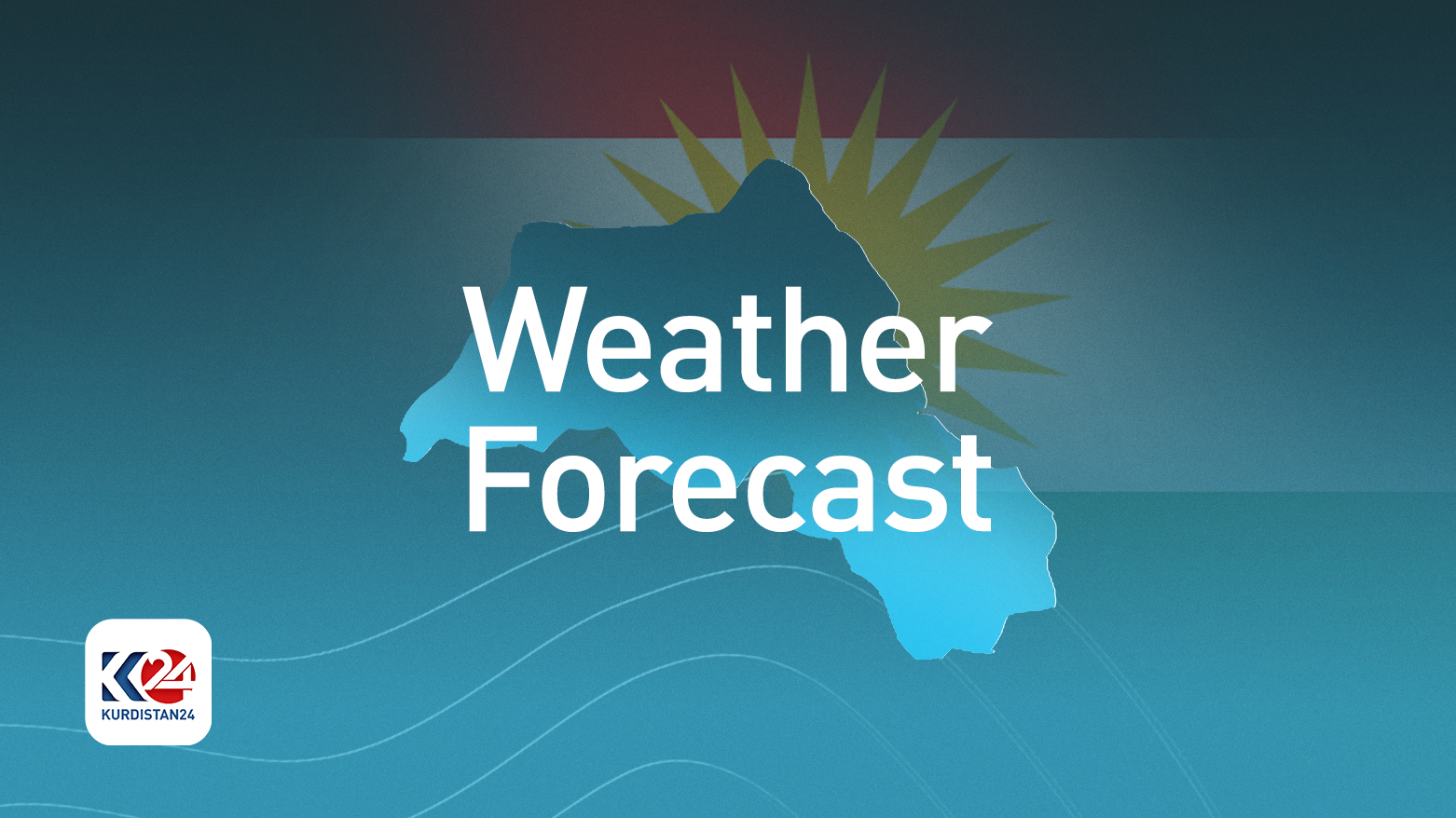Kurdistan Region Weather Authority forecasts slight temperature rise for Wednesday
For Wednesday, No. 6, 2024, the forecast predicts clear skies with scattered clouds and temperatures slightly higher than today's recordings.

ERBIL (Kurdistan24) — The Kurdistan Region Meteorological and Seismological Authority has released its 48-hour weather forecast, indicating a temperature increase for Wednesday.
According to the official statement released Tuesday, today's weather will be characterized by partly cloudy skies with a possibility of light rain in mountainous areas.
Conditions are expected to stabilize in the afternoon with clear to partly cloudy skies. Temperatures will see a slight increase of 1-2 degrees Celsius.
For Wednesday, No. 6, 2024, the forecast predicts clear skies with scattered clouds and temperatures slightly higher than today's recordings.
Maximum Temperature Forecast (in Celsius):
- Erbil: 22°C
- Sulaimani: 19°C
- Duhok: 22°C
- Kirkuk: 23°C
- Halabja: 21°C
- Zakho: 22°C
- Haji Omaran: 13°C
- Soran: 20°C
- Garmian: 25°C
Meanwhile, the Iraqi Meteorological Organization forecasts continued precipitation today in:
- Kurdistan Region’s Provinces of Duhok, Erbil, Sulaimani
- Mosul and Kirkuk
- Parts of northern Salahadin and northern Diyala
- Heavy rainfall expected in the Muthanna desert
- Lighter precipitation in Dhi Qar, Maysan, and Basra
For Wednesday's nationwide forecast, rain is expected to concentrate in:
- The desert areas of Najaf
- Muthanna province
- Parts of western Anbar
From Thursday through Saturday, precipitation is predicted to affect:
- Central Euphrates regions
- Some southern areas
- Western parts of Anbar province
This weather pattern is typical for early November in the Kurdistan Region, marking the transition from autumn to winter.
The varying temperatures between cities reflect the region's diverse topography, from mountainous areas like Haji Omaran (13°C) to warmer lowland areas like Garmian (25°C).
The precipitation pattern indicates the beginning of the rainy season, which is crucial for agriculture and water resources in both the Kurdistan Region and Iraq.